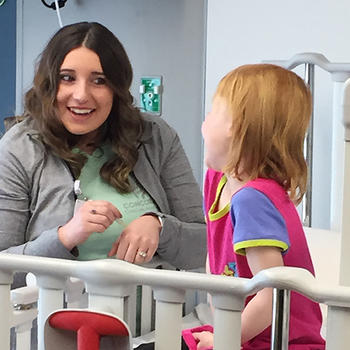 About the Profession
About the Profession
Social work in the United States is a diverse profession providing a wide array of services across the lifespan to individuals, families, groups, organizations, and communities. Social work’s mission is to restore or enhance human wellbeing while addressing environmental forces that contribute to problems in living with particular attention to the needs and empowerment of people who are vulnerable, oppressed, and living in poverty. Social workers often provide services as members of an interdisciplinary team or on a one-to-one basis with individual clients, patients, and consumers.
Social work aims to help people develop or maintain coping skills and to facilitate client empowerment in order to solve their own their problems. Social work is concerned with individual and personal problems but also with broader social issues such as poverty, unemployment, domestic and community violence, and health disparities.
A value-laden profession, human rights and social justice are the philosophical underpinnings of social work practice. The uniqueness of social work practice is in the blend of values, knowledge and skills, including the use of the helping relationship as the basis of all interventions and respect for the client’s choice and involvement. In a socio-political-economic context which increasingly generates insecurity and social tensions, social workers play an important and essential role.
What Does a Social Worker Do?
Professional social workers assist individuals, groups, or communities to restore or enhance their capacity for social functioning, while creating societal conditions favorable to their goals. The practice of social work requires knowledge of social work practice across systems, human development and behavior, policy analysis and practice with social, economic, political, and cultural institutions, and of the interaction among these factors.
Social workers are trained to work in a variety of settings (home, community-based and institutional settings) and for diverse types of employers (human services, non-profits organizations, local, state, and federal government, military, private-for-profit, and advocacy organizations or entities). They typically work on interdisciplinary teams with other professions and have a person-centered approach to decision-making and treatment planning.
Social workers trained in gerontology and geriatrics are trained to conduct holistic biopsychosocial geriatric assessments which attempt to untangle interconnected biological, physical, psychological, and social factors that affect health and well-being. As with many of the health professions, social work is increasingly focused on prevention and wellness in late life as well as problems of aging. Gerontological social workers are also skilled in crisis intervention as well as other forms of brief and/or short-term treatment modalities, family therapy, and resource development to strengthen older adults’ coping capabilities and their informal support system. Resolving barriers to service utilization is another distinctive area of gerontological social work. Similarly, gerontological social workers emphasize monitoring the effectiveness and appropriateness of services to ensure that needs are being met in the most effective and cost efficient manner for both the consumer and the service organization.
Specialties
Professional social workers are found in every facet of community life—in schools, hospitals, mental health clinics, senior centers, elected office, private practices, prisons, military, corporations, and in numerous public, private, non-profit agencies and grassroots groups and organizations–that serve individuals, families, and communities in need. They often specialize in one or more of the following practice areas:
Geriatrics and gerontology, clinical mental health services, serious mental illness and recovery services, disaster relief, military social work, adoptions, foster care, child welfare services, family preservation services, homeless assistance, hospital social work, crisis intervention, school violence, political development, advocacy, substance use prevention and treatment, employment assistance programs, staff training, management and administration, and many more.
Social workers, with their training in interpersonal relationships, group work and (often) interdisciplinary team skills, play a vital role in the development and functioning of the interdisciplinary team unit and in all major phases of its work, including assessment, goal setting and care planning, and monitoring/ evaluation. The social worker provides key leadership in identifying psychosocial issues that inhibit the full potential of the individual and her/his natural networks. The social worker’s roles within teams include convener, facilitator, resource broker, and expert in-group work skills, which contributes to their ability to foster team collaboration.
Academic Background
Established over 100 years ago, social work has a well-developed system of professional education governed by national educational policy and accreditation standards. A baccalaureate degree (typically the BSW) is considered the entry-level practice degree requirement for entry into the occupation. These positions typically include outreach, case management, and resource linkage duties. In order to practice more advanced social work and to work in most management positions, the master’s in social work (MSW) is required. Social workers may obtain licensure in order to practice independently in private practice and in some treatment settings, the licensure is required. The majority of licensed social workers in the U.S. have an MSW. Only those who have completed a minimum number of hours in supervised fieldwork are considered “professional social workers.” Furthermore, only masters-level social workers are able to practice clinical social work in most states with a license, or under the supervision of a licensed clinical social worker.
Program Overview
Accredited US schools of social work are required to comply with the standards and guidelines for academic course work and field practice established by the Council for Social Work Education. In a typical two-year program, social work students take foundation year courses in social work practice, human behavior and the social environment, social policy, research methods, and field practicum. Second year students take concentration year courses that are in alignment with their particular field of practice and interest. Students must complete 1200 hours of fieldwork which is designed to provide students with an opportunity to apply skills, knowledge, and values learned during the course of their academic curriculum.
